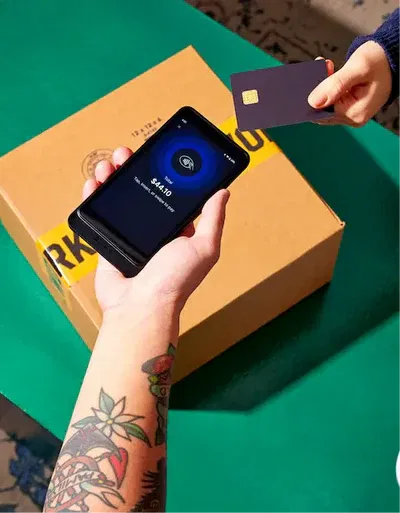Top Internet Resale Sites to Start Selling and Earning Today
The Ultimate Guide to Internet Resale Sites: How to Profit from the Online Resale Boom
Imagine clearing out your closet or garage and turning old items into real income. Or sourcing discounted products and flipping them for a profit—all from the comfort of your laptop. Welcome to the booming world of internet resale sites.
Whether you’re a side hustler, a full-time reseller, or a content creator looking for sites to sell content, the growth of reselling websites is opening up profitable opportunities like never before. In this guide, we’ll take you on a deep dive through the best online resale websites, compare reselling sites, offer pro tips, and help you set up your own resale business.
Let’s turn those dusty items—and even digital assets—into dollars.
| **Platform | Product Types | Listing/Commission Fees | Audience Reach | Shipping Support | Best For | Key Features & Notes** |
|---|---|---|---|---|---|---|
| eBay | All categories | ~10–13% + optional listing fees | Global | Optional (seller-managed) | General resale, niche collectibles | Longstanding platform with massive buyer base. Great for volume sellers. |
| Poshmark | Fashion, shoes, accessories | 20% (flat >$15) or $2.95 (<$15) | U.S. (mostly women) | Prepaid shipping labels | Clothing resellers, closet cleanouts | Community-driven with high engagement. |
| Mercari | General merchandise | 10% + 2.9% processing + $0.50 | U.S. | Prepaid labels | Beginners, wide product categories | Built-in rating system; intuitive mobile app. |
| Facebook Marketplace | Furniture, local items | Free for local; 5% w/shipping | Local + regional | Optional | Bulky items, quick cash | Use for fast local flips; risk of scams, vet buyers carefully. |
| OfferUp | Local goods, electronics | Free (local); up to 12.9% w/shipping | Local/Regional | Optional shipping | Selling without fees, local buyers | Simple and mobile-friendly. |
| Swappa | Phones, tablets, tech gear | Flat fee (~$0–$10 per sale) | U.S., tech-savvy | Required via Swappa Ship | Electronics and gadgets | Strict item rules = safer transactions. |
| Decluttr | Electronics, CDs, DVDs | Instant price, platform pays | U.S. | Free prepaid shipping | Bulk gadget sales | Fast payouts but lower prices than peer-to-peer resale. |
| Etsy | Vintage (20+ years), crafts | $0.20 per listing + 6.5% fee | Global | Seller-managed | Niche sellers, handmade or vintage items | Strong branding, limited for pure resale. |
| Amazon Trade-In | Books, games, electronics | Credit-based (no fee) | U.S. | Free UPS shipping | Passive decluttering | Amazon gift cards only; no cash earnings. |
| Gumroad | Digital products, content | 5% + Stripe/PayPal fees | Global | N/A | Courses, eBooks, art, music | Best for creators & passive income streams. |
| Payhip | Digital downloads, courses | Free plan (5% fee), or paid | Global | N/A | Beginners selling digital goods | Includes VAT handling and affiliate tools. |
| AbeBooks | Academic & used books | 8–15% commission + $0.99/item | Global (especially scholars) | Seller-arranged | Rare books, textbooks | Academic niche resale; low competition. |
| Ecwid | Add-on store, any products | Free up to 5 products | Depends on site used | Site-integrated or external | Content creators & bloggers selling extras | Ideal for adding a store to an existing website. |
What Are Internet Resale Sites?
Internet resale sites are online platforms that allow individuals or businesses to resell new, used, or refurbished items to other buyers. These can range from physical goods like electronics and clothing to digital products and media content.
Some popular types of resale include:
-
Consumer resale (used clothes, gadgets, books)
-
Retail arbitrage (buying discounted retail products to flip online)
-
Digital resale (courses, eBooks, stock photos)
-
Secondhand/vintage resale
Whether you’re looking to resell online as a hobby or to launch a full-time business, there’s an internet resale site for your goals.
Why Internet Resale Sites Are Exploding in Popularity
In the United States, the resale market is projected to double over the next five years. Thanks to sustainability trends, inflation-conscious shopping, and the rise of eCommerce tools, more people are turning to online resale websites for both buying and selling.
Key reasons for the surge:
-
Shoppers want value and deals.
-
Sellers want passive or active income streams.
-
Platforms make it easy with apps, logistics, and secure payments.
If you’ve ever wondered if it’s still worth it to resell online, the answer is yes—especially if you know which reselling websites to use and how to maximize your profits.
Types of Internet Resale Sites
Not all internet resale sites are created equal. Here’s a breakdown of the major categories:
1. General Reselling Sites
-
eBay – The OG of resale, suitable for almost everything.
-
Facebook Marketplace – Great for local pickups and community sales.
-
OfferUp – Local mobile-focused app, perfect for household items.
2. Clothing & Fashion
-
Poshmark – Social-based resale, great for fashion and accessories.
-
Depop – Targets younger audiences (Gen Z), vintage and streetwear.
3. Electronics & Gadgets
-
Swappa – Safe platform for phones, tablets, laptops.
-
Decluttr – Sell electronics, media, and more with shipping included.
4. Books & Media
-
AbeBooks – Academic and rare books resale.
-
Amazon Trade-In – For eligible books, games, and electronics.
5. Niche & Handcrafted
-
Etsy (resale allowed with disclosure) – Focused on vintage (20+ years old) and handmade.
-
Mercari – A growing reselling site with a wide product range.
6. Digital & Content-Based
-
Gumroad – Top among sites to sell content like eBooks, music, and art.
-
Payhip – Sell courses, downloads, or memberships.
How to Choose the Best Internet Resale Site for You
When selecting the right internet resale sites, consider:
-
What are you selling?
-
Who is your target buyer?
-
What fees or commissions apply?
-
Does the platform offer shipping or fulfillment?
For example:
-
Selling designer fashion? Try Poshmark.
-
Moving old electronics? Swappa or Decluttr.
-
Offering digital content? Use Gumroad or Payhip.
No single reselling site is best for everything, so test multiple to see what works for your products and business style.
Table: Comparison of Top Internet Resale Sites
| **Platform | Product Types | Fees | Audience | Shipping Support | Best For** |
|---|---|---|---|---|---|
| eBay | Almost everything | ~10–13% + listing | Global | Optional | Resale pros, niche collectors |
| Poshmark | Fashion | 20% flat (>$15) | U.S., social | Prepaid labels | Stylish used clothing |
| Mercari | General | 10% + payment fee | U.S. | Prepaid labels | New resellers |
| Facebook Marketplace | Local items | Free | Local | Optional | Bulky items, furniture |
| Swappa | Electronics | ~$0-$10 flat | Tech-savvy buyers | Built-in | Phones, tablets |
| Gumroad | Digital goods | 5% + Stripe fees | Creators | N/A | Courses, art, eBooks |
| OfferUp | Local resale | Free or % w/shipping | Mobile/local | Optional | Household goods |
Pros and Cons of Internet Resale Sites
Pros:
-
Low startup costs
-
Quick setup—no need to build a site
-
Built-in buyer traffic
-
Flexible schedule
Cons:
-
Platform fees eat into margins
-
Limited branding opportunities
-
Competitive pricing
-
Varying return/refund policies
But with the right approach, reselling websites can become powerful revenue channels—even full-time income sources.
How to Succeed on Online Resale Websites
Success on online resale websites doesn’t come from luck. Here’s how to stand out:
1. Optimize Product Listings
-
Use keywords buyers search for.
-
Include detailed descriptions.
-
Highlight unique selling points.
-
Take clear, well-lit photos.
2. Price Competitively
-
Check what similar products sold for.
-
Offer bundle deals or shipping discounts.
3. Be Responsive and Honest
-
Answer questions fast.
-
Clearly disclose product condition.
4. Ship Quickly
-
Use tracking numbers.
-
Pack items safely.
Being reliable builds trust and boosts your reviews—which means more sales on internet resale sites.
Selling Digital Products on Internet Resale Sites
Reselling isn’t just for physical products. If you’re a creative, designer, or educator, sites to sell content like Gumroad or Payhip let you:
-
Upload digital files (eBooks, PDFs, courses)
-
Set pricing or offer subscriptions
-
Integrate with email lists
Unlike physical resale, digital reselling has no inventory, no shipping, and high margins—perfect for scaling passive income.
Tips for Reselling Products Online Profitably
If you’re ready to resell online, these tips will help:
-
Start with stuff you own to minimize risk.
-
Use garage sales, clearance racks, or thrift stores to source products.
-
Batch your shipping to save time.
-
Cross-list on multiple reselling sites using tools like Vendoo or List Perfectly.
Many sellers turn flipping into a business—some even specialize in sourcing resale products online from wholesalers or liquidation pallets.
Common Mistakes New Sellers Make on Internet Resale Sites
Watch out for these traps:
-
Overpricing your items
-
Poor-quality photos
-
Not reading platform policies
-
Ignoring shipping costs
-
Skipping research on past sales
Learn the rules of each internet resale site and adapt. Mastering the details helps you become a top-rated seller, no matter what you’re reselling.
Future of Reselling: Where Internet Resale Sites Are Headed
As more people embrace secondhand goods and digital content, reselling sites will only grow. Expect to see:
-
More mobile-first platforms
-
AI-powered pricing and listing help
-
Integration of resale into social media
-
Green shopping incentives
If you’re passionate about sustainability or eCommerce, online resale websites offer a rewarding, flexible path forward.
1. What are internet resale sites, and how do they work?
Internet resale sites are online platforms where individuals or businesses can buy and sell secondhand, surplus, or digital goods. These platforms act as digital marketplaces, enabling users to list products—like clothing, electronics, collectibles, or even digital downloads—for resale to others. Sellers upload product details, images, and pricing, while buyers search for specific items and purchase directly through the site.
Examples of internet resale sites include eBay, Poshmark, Mercari, and Gumroad. Each one caters to different niches—whether it’s fashion, electronics, or digital content. These reselling websites make it easy to resell online without having to build your own storefront or website.
2. What are the best internet resale sites for beginners?
For beginners, the best internet resale sites offer simplicity, low fees, and ease of listing. Some excellent choices include:
-
Mercari: Ideal for general items and intuitive mobile-first design.
-
Facebook Marketplace: Great for local selling with no fees.
-
Poshmark: Best for beginners interested in fashion and accessories.
-
OfferUp: Excellent for local transactions and household items.
These platforms are considered among the top reselling sites due to their low learning curve and fast setup. Beginners can start reselling with little to no upfront cost.
3. How do I start using online resale websites to make money?
To begin earning through online resale websites, follow these steps:
-
Choose a platform that fits your product niche.
-
Register for a seller account and complete your profile.
-
Take clear, high-resolution photos of your items.
-
Write honest and keyword-rich product descriptions.
-
Price items competitively based on sold listings.
-
Ship quickly and communicate with buyers.
Many successful sellers on reselling websites start with items they already own, such as clothes, books, or electronics. Once comfortable, they move to sourcing inventory from thrift stores, wholesalers, or liquidation sales.
4. What types of products sell best on internet resale sites?
Resale products online that perform well include:
-
Fashion and accessories (e.g., designer brands, shoes)
-
Electronics and gadgets
-
Books and textbooks
-
Video games and consoles
-
Home decor and furniture
-
Digital goods like courses or templates
The key is to list high-demand, low-supply items. Each internet resale site tends to favor certain categories. For instance, Poshmark is excellent for fashion, while Gumroad excels for digital content.
5. Are there any free internet resale sites to get started with?
Yes, several internet resale sites allow you to list items for free:
-
Facebook Marketplace: Zero listing fees for local transactions.
-
OfferUp: No fees unless using their shipping feature.
-
Gumroad: Offers a free tier for digital product sellers.
-
Big Cartel: Free plan for listing up to 5 products.
These reselling websites are ideal for those wanting to test the waters before investing in more advanced tools or paid marketplaces.
6. How do internet resale sites compare to having your own ecommerce store?
Selling on internet resale sites has several advantages:
-
Easier setup
-
Built-in traffic
-
No need for a separate domain or hosting
-
Lower upfront cost
However, having your own ecommerce store gives you full control over branding, customer experience, and profit margins.
That said, many sellers use both: online resale websites for fast exposure and personal stores for long-term growth.
7. What are the top reselling sites for fashion and accessories?
For fashion, the best reselling sites include:
-
Poshmark: User-friendly and built for fashion resale.
-
Depop: Popular with Gen Z, especially for vintage and streetwear.
-
ThredUp: Allows you to send a Clean Out Kit and let them resell your items for you.
These platforms specialize in fashion and are tailored to customers looking for sustainable, pre-loved clothing.
8. Can I sell digital products on internet resale sites?
Absolutely! Some internet resale sites specialize in digital goods. Popular sites to sell content include:
-
Gumroad: For courses, eBooks, music, and memberships.
-
Payhip: Allows creators to sell downloads and subscriptions.
-
Sellfy: Supports digital and physical product sales.
Digital resale offers high margins and zero inventory management. You upload your file once and resell online as often as you’d like.
9. What are the fees involved in using reselling websites?
Fees vary across reselling websites. Common charges include:
-
Listing Fees (e.g., eBay: ~$0.35 after free listings)
-
Final Value Fees (eBay ~10–13%, Poshmark 20%)
-
Processing Fees (Mercari adds 2.9% + $0.50)
-
Shipping Fees (Either seller-paid or buyer-paid)
Understanding these costs ensures you price your resale products online profitably.
10. How do I price items on internet resale sites?
To price effectively on internet resale sites:
-
Research what similar items have sold for.
-
Consider condition, brand, and rarity.
-
Factor in shipping and platform fees.
-
Offer bundle discounts or sales to stand out.
Some online resale websites even suggest pricing ranges based on historical sales.
11. How do I increase sales on reselling websites?
To sell more on reselling websites:
-
Use SEO-friendly titles and descriptions.
-
Upload multiple product images.
-
Respond quickly to buyer questions.
-
Offer fast and reliable shipping.
-
Get positive reviews and build seller trust.
Many successful sellers on internet resale sites cross-list products using software like List Perfectly or Vendoo to reach more buyers.
12. Can I build a full-time income from online resale websites?
Yes! Many entrepreneurs earn full-time income from online resale websites by:
-
Scaling inventory through thrift shops, wholesale, or liquidation
-
Reinvesting profits into tools and marketing
-
Specializing in profitable niches (e.g., sneakers, vintage books, digital courses)
-
Tracking profit margins and optimizing listings
Consistency and strategy are key to growing your resell online business into something sustainable.
13. What are the risks of using internet resale sites?
Risks include:
-
Fraudulent buyers or chargebacks
-
Shipping delays or disputes
-
Platform account suspensions
-
Competitive pricing reducing profit
To minimize these risks, always follow platform rules, ship with tracking, and maintain professional communication. Reselling sites with strong buyer/seller protections, like eBay or Mercari, are especially helpful for new sellers.
14. What’s the difference between reselling sites and marketplaces like Amazon or Etsy?
Amazon and Etsy are more structured, requiring formal setup, and they often involve higher fees or more rules. In contrast, internet resale sites like eBay or Facebook Marketplace are more flexible and beginner-friendly.
However, Etsy does allow resale products online if they’re vintage (20+ years old), and Amazon has a trade-in program and seller central for professional resellers.
15. Can I sell internationally on internet resale sites?
Yes, platforms like eBay, Gumroad, and Payhip support international buyers and sellers. Others, like Poshmark, are limited to specific regions.
If you want to resell online globally, choose platforms with international shipping tools, automatic currency conversions, and support for cross-border taxes.
Conclusion: Ready to Launch on Internet Resale Sites?
There’s never been a better time to explore internet resale sites. Whether you’re cleaning out your home, flipping thrift store finds, or selling digital downloads, there’s a platform built for you.
✅ Low upfront costs
✅ Flexible hours
✅ Unlimited potential
Start simple. Choose a niche. Test a few platforms. Build up your listings. And soon, you’ll see why so many people turn to reselling websites not just to declutter—but to thrive.
Which internet resale sites have you tried or plan to explore? Comment below with your experiences or questions!




